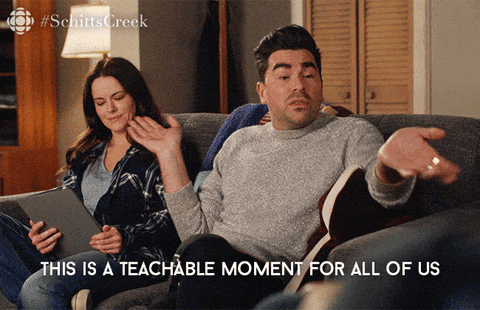On the Shelf Life of Skills
Or Why Perpetual Upskilling is the Future (and Why That's Good News)
In my work at Intersections I spend a lot of time thinking about the future of learning and expertise, especially the way in which everything is just getting fundamentally (and sometimes exponentially) faster.
What is a “half-life” anyway?
The idea of the “half-life” of skills comes from Stephane Kasriel, the CEO of Upwork and a member of the World Economic Forum. It leverages the concept from nuclear physics which refers to the time in which the value of something decreases (or decays) by half. When she introduced this idea in 2017 (what feels like much longer ago than it actually is), she suggested that the average half-life of a skill was approximately five years.
According to a recent report from the Boston Consulting Group it’s even faster than that:
Advances in technologies are rapidly changing the demand for skills. Increasingly, technology is handling repetitive and manual tasks and even sophisticated knowledge-based work—such as research, coding, and writing—long considered safe from disruption. But the average half-life of skills is now less than five years—and half that in some tech fields. Many knowledge workers will discover that AI and other new technologies have altered what they do. They will effectively be working in completely new fields.
All of these realities have people, organizations, and other influential institutions scrambling to figure out the future of upskilling in a world that is advancing faster than most of us ever imagined. Places like Harvard Business Review, Deloitte, McKinsey, World Economic Forum, and others.
Despite all the competing and conflicting numbers, the mixed predictions, and the general sense that we can’t quite put our finger on the future, the common thread is this: Whatever we used to do will no longer serve us.
There are two immediate things that people and organizations have to take seriously if they aren’t going to be caught way behind before they know it…
Professional Development Becomes Essential
You know when you look at a job description and it has some throw-away line like “and other duties as assigned”? I think that is how most organizations think about professional development and upskilling. It’s nice, it’s small, and it’s largely optional (especially the higher up you get!). No more.
According to one report, the average employee receives approximately 57 hours of professional development per year. Presuming a forty hour workweek for 48 weeks out of the year, this would mean that the average person spends a whopping 2.97% of their time learning something in a way that is not simultaneous to fulfilling their job requirements. I expect this to grow exponentially in the next three years, especially for knowledge workers and experts. The more your work is grounded in expertise and other forms of knowledge work the more disrupted your jobs will be because of artificial intelligence.
For companies that want to retain talent, minimize turnover and burnout, and keep up with the breathtaking pace of advancement, I predict that this number will increasingly move closer to upwards of 20%.
Most people who lose their jobs due to its exposure to artificial intelligence will not lose it entirely to the technology. They will not be replaced one-to-one by a machine, but they absolutely will be replaced by the person who effectively leverages that technology.
So right now, while the gap between the people who “get it” and those who don’t is small is your absolute last chance to move toward the front without massive investments of time, money, and attention.
Right now, you are only left behind if you choose to be.
Credentialing gets fast, small, and holistic
This deserves a much longer explanation (for another time), but here is the short version.
In any previous era, if you really wanted to be good at something it took a lot of work and a lot of time. You know, you have to get your 10,000 hours in (but that’s not true at all). What this ultimately meant is that more often than not, professional development was much larger, longer, and less effective than we imagined.
Very rarely does it actually take half a day to learn something, and if it does, it almost always takes more time than the actual professional development experience can provide.
So I think that the future of professional development, upskilling, and learning is this:
Fast. It is about efficiency, economy of language and time, and stops wasting time and energy on unnecessary fluff.
Small. Out are the trainings with wildly open-ended topics like “communication” or “leadership”. Instead they will be replaced with targeted interventions, “communication with customers for sales” or “leadership approaches to sticky problems in engineering”.
Holistic. They will seek to demonstrate mastery of both content (again, small and specific) and competency (that they can, have, or will be able to apply this in a way that others can observe and quantify).
The Future is Wild and Exciting
Ultimately, I am convinced that we are at the dawn of the Golden Age of Human Learning and Expertise, but that the gap between the people who press into the edge and those who "wait and see" or cling to the old ways will be left behind in ways that will largely be unrecoverable.
Your window to make the decision about which one you will be closes by the end of 2024 (though I'm not convinced it is even that long).





All good points. I think you are spot on.
As a former public school educator, I’d also like to see RELEVANT professional development. So much PD for teachers actually applied little to real situations--some of that was because the information didn’t evolve with the times.